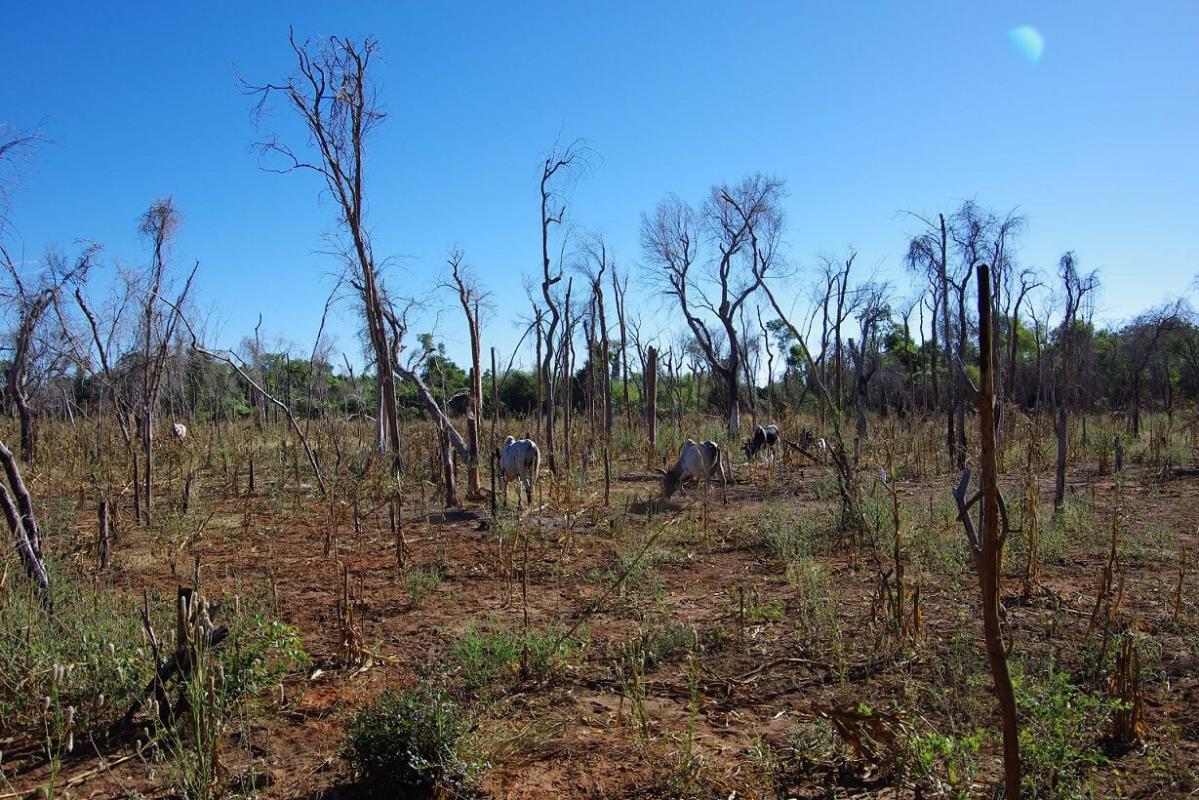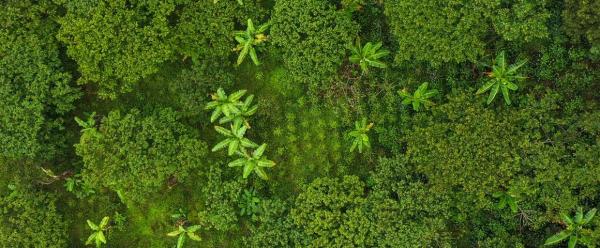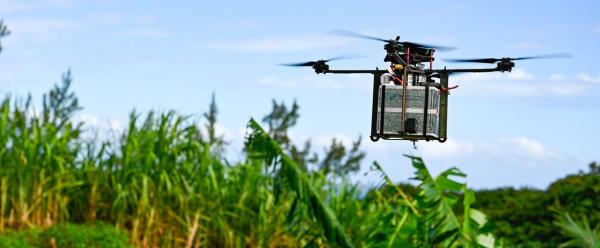Results & impact 10 October 2025
- Home
- Press area
- Press releases
- zoonotic diseases and deforestation Covid-19
Zoonotic disease emergence and deforestation: a vicious circle exacerbated by the effects of Covid-19

The Covid-19 pandemic and its economic impact have accelerated deforestation in the tropics © G. Vieilledent, CIRAD
Within a month of the first sanitary measures intended to contain the spread of Covid-19 in 2020, warnings of deforestation in the tropics had already exceeded 9500 km2. In 2019, at the same point in the year, the figure was roughly half that: 4732 km2. A team of scientists were intrigued by this, and set out to pinpoint the possible links between increased tropical deforestation and the Covid-19 pandemic. They concluded that it may be the socioeconomic consequences of the pandemic that have prompted the deforestation, which has in turn increased the risks of the emergence of new viruses.
"When we compared satellite 2020 images with those for the same period in 2019, we found that within a month of the introduction of sanitary measures, deforestation was up 63% in the Americas, 136% in Africa and 63% in Asia and the Pacific", says Bruno Hérault, co-author of the study and tropical forests specialist at CIRAD. "The Covid-19 pandemic is undoubtedly not the only reason for the rise, but we think it has played a major role."
Forest fires are exacerbating respiratory problems among local people
Clearing generally means setting fire to forest plots. The resulting airborne particles are the leading cause of premature deaths in humans as a result of air pollution in the tropics. Forest fires exacerbate respiratory problems among local people, and in the midst of the Covid-19 crisis, this risks overwhelming the already fragile health systems in these zones.
"We might add that as governments are focusing on managing the health crisis, the fight against deforestation may have to take a back seat. We could be faced with a particularly dangerous vicious cycle", Bruno Hérault stresses.
Tropical deforestation increases the risk of new epidemics
In the longer term, the economic crisis lurking on the horizon could make many tropical countries more reliant on agricultural commodity exports. The political and economic situation may work against forest protection policies.
"We know that the risks of infectious disease emergence are greater in tropical regions with high deforestation rates", Serge Morand, an ecologist and infectious diseases specialist at CNRS and CIRAD, points out. "Increased deforestation means increased interactions between wildlife, which is a reservoir of as yet unknown viruses, and human activity, notably agriculture. Almost 50% of the zoonoses that have emerged since the 1940s are associated with agriculture."
Four recommendations
In the light of their observations, the researchers have four recommendations for the public authorities:
- Protect rural and indigenous communities, which are the most exposed to the risks and the most vulnerable to infectious diseases, notably due to their limited access to health services.
- Make halting deforestation a priority in tropical zones, by looking beyond the dualism of public health and economic issues.
- Anticipate an increase in forest fires ahead of the dry season in tropical zones.
- Support legal timber markets and supply chains.
"The current pandemic could exacerbate the damage to already threatened forest systems. There is no getting away from the need to halt illegal deforestation and protect indigenous communities, even during the pandemic", Pedro H.S. Brancalion, a researcher at the University of São Paulo and lead author of the study, concludes.
Reference
Pedro H.S. Brancalion, Eben N. Broadbent, Sergio de-Miguel, Adrián Cardil, Marcos R. Rosa, Catherine T. Almeida, Danilo R. A. Almeida, Shourish Chakravarty, Mo Zhou, Javier G. P. Gamarra, Jingjing Liang, Renato Crouzeilles, Bruno Hérault, Luiz E. O. C. Aragão, Carlos Alberto Silva, Angelica M. Almeyda-Zambrano. 2020. Emerging threats linking tropical deforestation and the COVID-19 pandemic. Perspectives in Ecology and Conservation



























